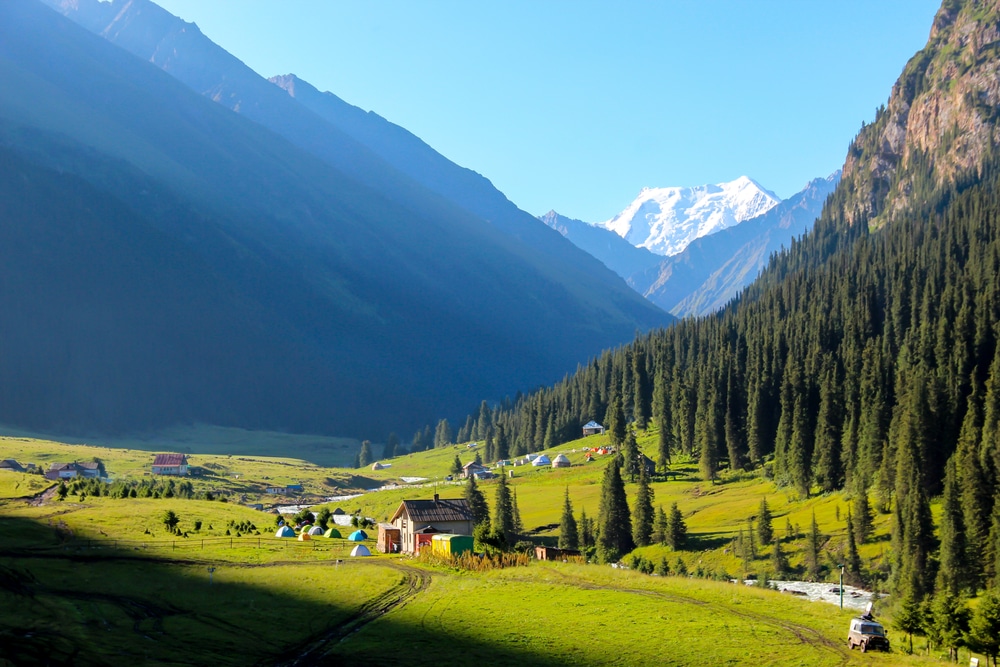During the last two years, the UAE has had strict COVID restrictions (one of the toughest in the world): the wearing of masks in public spaces, vaccination certificates or negative tests for arrivals, green passes to enter public areas, and a ban on citizens from unsafe countries. The last restrictions were recently lifted completely. The current situation in the UAE regarding COVID is now under control. In this article, we discuss the first results of the revival of tourism in the region after the lifting of COVID restrictions.
What COVID restrictions are still in place in the UAE?
The UAE still has some restrictions: wearing masks in hospitals, organizers of sporting events can still require PCR tests or vaccination certificates to attend or attend their events. However, these restrictions are not as significant and do not have much impact.
One of the most important changes is the lifting of flight restrictions. According to the Global Business Travel Association (GBTA), business travel in the Middle East and Africa is recovering faster than in any other part of the world.
Digital nomads and post-pandemic travel
The pandemic has fundamentally changed the world of work and the travel behavior of people worldwide. Tourism in the region already reached 86 percent of 2019 levels in 2022 and is expected to reach pre-crisis levels by 2024 and continue to grow. The statistics show a significant growth in business travel spending. Especially in the age of digital nomads (people who work flexibly and remotely and often take long trips), the demand for travel is growing.
Travel trends for 2023 suggest that travel-hungry people also want to spend more than they did last year. The demand for luxury experiences is also increasing. One of the reasons for this is the so-called “revenge travel” effect, in which people now have particularly pronounced travel desires after long periods of isolation and limited travel options and are willing to spend more money on them.
Digital nomads are increasingly drawn to countries such as the UAE, which are particularly attractive due to their first-class infrastructure, variety of leisure activities and high quality of life. Dubai has even introduced a special visa for digital nomads, allowing them to live and work in the country for up to a year.
The increased interest in long-term travel and flexible work arrangements also creates opportunities for the real estate market in the region. This could be the best time to invest in Dubai real estate as the tourism potential of this region is at its highest. Statistics show how the tourism sector in Dubai is recovering after the pandemic. Dubai is also the best city for people who prefer luxurious vacations.
Providers of co-working spaces and accommodation tailored to the needs of digital nomads are also benefiting from this trend. They offer flexible leases, good internet connections and attractive common areas that promote networking and exchange among residents.
To realize the potential of this growing market, investors should consider investing in
Dubai real estate
. The city offers a wide range of real estate options, from modern apartments in central locations to luxurious villas in exclusive residential areas.
Trends in the hotel industry in the UAE
The hotel industry in the UAE suffered from the impact of the COVID-19 pandemic. In 2020, the industry saw a sharp decline, with average daily room rate (ADR) down 20.4%, revenue per available room (RevPAR) down 42.9%, and occupancy down 28.2% compared to the same time in 2019. These figures highlight the negative impact of the pandemic on the tourism and hospitality industry in the UAE and highlight the need for effective recovery strategies to ensure the safety of tourists and the sustainability of the industry.
In the meantime, the situation has improved, and the hotel industry in the UAE is on the road to recovery. By 2026, the industry’s revenue is expected to reach over $7 billion, representing significant growth from 2021 to 2026. The industry has taken various measures to adapt to the changing market conditions and meet the challenges of the pandemic.
One of these measures is the introduction of
hygiene concepts
and safety protocols to restore guests’ confidence in travel safety. Many hotels have also made their cancellation policies more flexible to address travelers’ uncertainties and encourage potential guests to make bookings.
In addition, some hotels have focused on specific audiences, such as digital nomads or business travelers, and adapted their offerings accordingly. This includes flexible workspaces, high-speed internet access, and long-term residency options.
The hotel industry in the UAE has also invested in eco-friendly technologies.
and sustainable practices to reduce the environmental footprint and promote responsible tourism. This includes the use of solar energy, water-saving measures and environmentally friendly building materials.
In addition to traditional hotels, boutique hotels and lifestyle brands have also gained popularity, offering unique experiences and personalized services. These new concepts are particularly appealing to millennials and Gen Z who are looking for authentic and memorable travel experiences.
Investing in hotels is also an interesting option for investors. Due to the expected growth of the industry and the increasing demand for accommodation, hotel investments in the UAE offer good return opportunities and a high potential for long-term success.
Final Thoughts
In conclusion, with the increasing number of tourists and business travelers visiting the UAE, the demand for rental apartments and hotel accommodation will remain strong. In the next 2-3 years, this industry is expected to become one of the most successful in the world.




